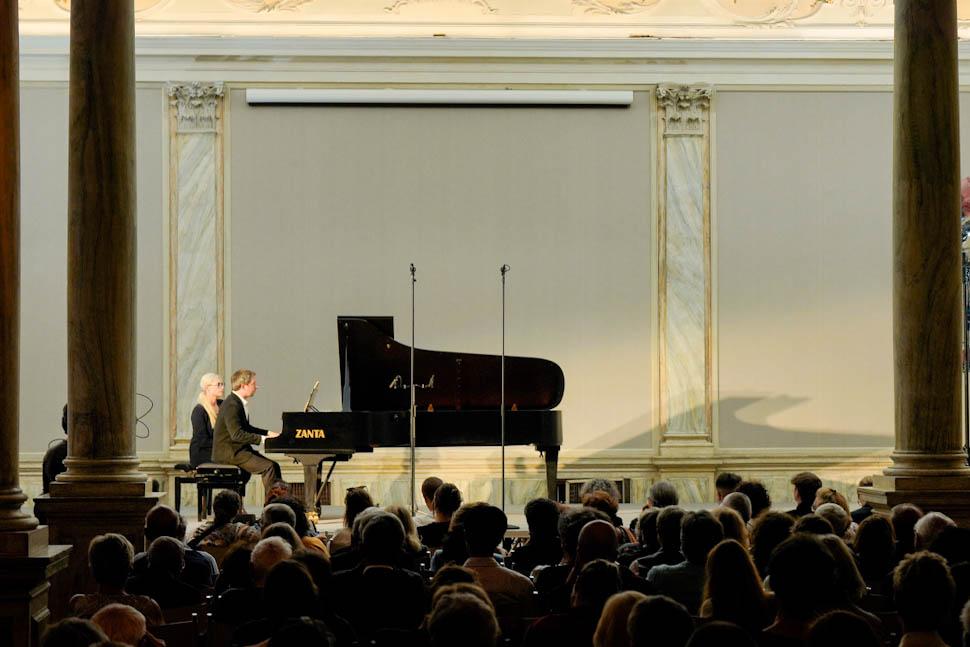| Miles Walter: | Fantasy for piano solo (2024, 21’), world premiere (Biennale College Musica - Composers). Production La Biennale di Venezia – CIMM, Centro di Informatica Musicale Multimediale |
|---|---|
| George Benjamin: | Shadowlines, 6 canonic preludes for piano (2001, 20’) |
| Unsuk Chin: | Piano Etudes 1-6 (1995-2003, 16’), Italian premiere |
| Piano: | Bertrand Chamayou |
Miles Walter / George Benjamin / Unsuk Chin

Miles Walter - Fantasy for piano solo
Fantasy is an old word in music, used over the centuries and across nations to describe a variety of musical forms and purposes. I confess that I use the term somewhat in the manner of Schumann: my work is a large, multi-movement statement for the piano, incorporating rigorous formal processes, recognisable shapes, and some of the rhetoric of the sonata... and yet I cannot call it that.
If fantasy is perhaps a catch-all term, a back-up word easily used when a composer is at a loss to describe one of their more unruly children, it’s then also a catch-all term for those works which retain some mystery even once committed to the page. I hope I also use it in this spirit: this is, I hope, music which opens up onto the fantastical, the mysterious, music which invites and taps into dream logic.
Miles Walter
George Benjamin - Shadowlines
This sequence of pieces, Shadowlines, all canons in different ways, was conceived as a continuous, cumulative structure: 1) A brief, seemingly improvisatory prologue. 2) The high register, fierce and harshly chromatic, against the lower, which is consonant and calm; a compact coda reconciles these opposites. 3) A miniature scherzo, all within the space of 11/2 octaves in the bass, leading immediately to: 4) Explosive and monolithic, the pianist’s hands perpetually rifting apart then re-uniting in rhythmical unison. 5) The most expansive and lyrical movement; at its heart a slow groundbass, over which builds a widely contrasted procession of textures. After a short pause: 6) A simple and gentle epilogue.
George Benjamin
Unsuk Chin - Piano Etudes 1-6
The music critic Oscar Bie wrote, with respect to Frédéric Chopin, that there is no “piano music more “real” than an etude, [since] the essence of the piano has become music in it”. I am of the same opinion, not only as far as Chopin is concerned, but also with regard to the etudes of other great piano composers, Franz Liszt, Béla Bartók, Olivier Messiaen, and the works of their predecessors as well, Domenico Scarlatti’s Essercizi, Johann Sebastian Bach’s Well-tempered Clavier or his Clavier-Übungen. I am very much attracted by the boundary-crossing, “transcendental” (Liszt) aspect on which all important etudes are based: the idea that the pianist is prepared to push himself to – or past – his/her limits.
Unsuk Chin